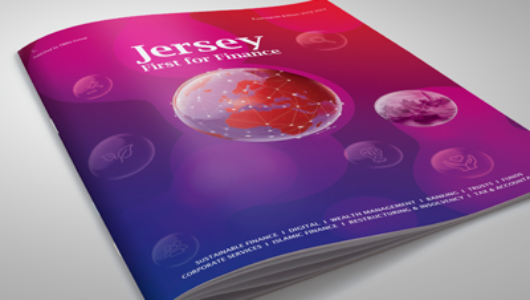Those who were bullish cited expectations around the swift control of the virus, the lifting of restrictions without significant changes to consumer behaviour and the robustness of global supply chains, all leading to a fast recovery. Those who were more bearish feared a longer period between decline and recovery, with COVID-19 lingering, restrictions to consumer behaviour and business failure contributing to greater economic dislocation and a slower, gradual recovery.
As it turned out, at least initially, those in the ‘V-shaped’ camp emerged with enhanced forecasting reputations. In the UK, after a 21.4% decline in quarterly GDP by Q2 of 2020 (relative to Q4 2019), Q3 saw growth of 17.6%. By Q4 of 2021, output had fully recovered to pre-pandemic levels. In Jersey, while statistics are not available at the same level of granularity or frequency, employment data suggests a similar trend. After a 2.6% decline in employment in the six months to June 2020, in both June and December of 2021, employment had recovered to again exceed pre-pandemic levels.
However, to state the obvious, even withstanding the direct impacts of the pandemic, the last two years have hardly been plain economic sailing. While there was some talk of the potential for a double-dip recession if the virus and associated restrictions cyclically surged and abated, few could have foreseen the broader litany of economic headwinds that would emerge over the last two years. From COVID restrictions, to supply-chain disruptions, to the current cost of living crisis, at times it has felt like we have collectively lurched from ‘global economic challenge’ to ‘global economic challenge’. In fact, Google Trends data shows that global search interest in the term has almost doubled since March 2020, relative to the preceding two and a half years.
Cebr’s forecasts for real GDP growth over the next several years reflect this trend. We estimate this will stand at just 0.5% in the UK in 2023, while forecasts for other major developed economies such as the United States (1.2%), Germany (0.7%), France (1.1%) and Japan (1.7%) are equally tepid. None of these are expected to revert back to even 2.0% until at least 2026.
JERSEY’S CONTRIBUTION TO GLOBAL VALUE CHAINS
For an economy which is as intrinsically interconnected with the global economy through its financial services sector, this has significant implications for Jersey. Over much of 2021, Cebr worked with Jersey Finance to evidence this interconnectedness, through quantifying Jersey’s role as a crucial international financial and economic conduit, within the global economy. Our research found significant evidence for Jersey’s value to the global economy, through their contribution to Global Value Chains (GVCs).
The different aspects of a value chain can be performed within the same firm or divided among different firms and countries. GVCs conceptualise the interconnected networks of global producers and consumers in the modern global economy, as well as highlighting the increasing specialisation by certain geographies in the production and exporting of certain goods and services. Global investment flows – such as the ones that Jersey contributes to – stimulate large degrees of economic activity through the network of integrated global value chains.
Our analysis found that Jersey supported an average of £170 billion of global economic activity each year between 2017 and 2020 (0.27% of global GDP) through its contributions to GVCs. This is approximately equal to the total GDP directly generated by New Zealand. In addition, this economic output was associated with the support of over five million jobs on average over the period. These findings were all driven by the £1.4 trillion of capital intermediated on the Island, between the fund management, banking and trust and other asset management sectors.
To put these figures into some context and highlight the scale of the financial sector’s global reach relative to the Island’s absolute size, the population of Jersey accounts for only 0.001% of the global population. This proportion is nearly three hundred times smaller than the wider impact of the associated value chains. Alternatively, for every financial services job in Jersey, the Global Value Chains facilitated by the Island support approximately an additional 380 jobs globally.
THE IMPACT OF GLOBAL HEADWINDS ON JERSEY
Our research showed that Jersey makes a sizeable contribution to the global economy. However, having embraced this role so significantly, this does create theoretical exposure to global macroeconomic disruptions.
Clearly there is cause for concern, when considering the high importance of financial services to Jersey’s economy, the interdependence between Jersey’s financial services and the global economy and gloomy global economic forecasts. If these forecasts are borne out over the next year, Jersey’s resilience will likely again be tested.
Yet Jersey’s institutional quality and world-class ancillary business services – both frequently referenced in our stakeholder engagement as key Jersey-specific reasons for financial services firms choosing to locate on the Island – do provide some grounds for forward-looking optimism. In particular, institutional stability is likely to be attractive to investors looking for relatively safer destinations for their assets.
Providing further reassurance, we again refer back to the results of our previous research. Our analysis encompassed the period from 2017 to 2020, therefore covering the early impacts of the COVID-19 pandemic. Notably, our research did not find a decline in the value of capital intermediated in Jersey in 2020 relative to 2019. Instead, we estimate that this value actually increased in nominal terms by 3.5% in 2020, which is encouraging in terms of Jersey’s ability to withstand external shocks.
Equally, our global forecasts are slightly more optimistic than those solely looking at major developed economies. We estimate global real GDP growth will average 2.8% over the next four years, not dissimilar to the 2.9% averaged in the four years from 2016 to 2019.
Therefore, despite the much-discussed global headwinds, there are reasons to have tentative optimism, in terms of Jersey’s resilience and resulting outlook.

